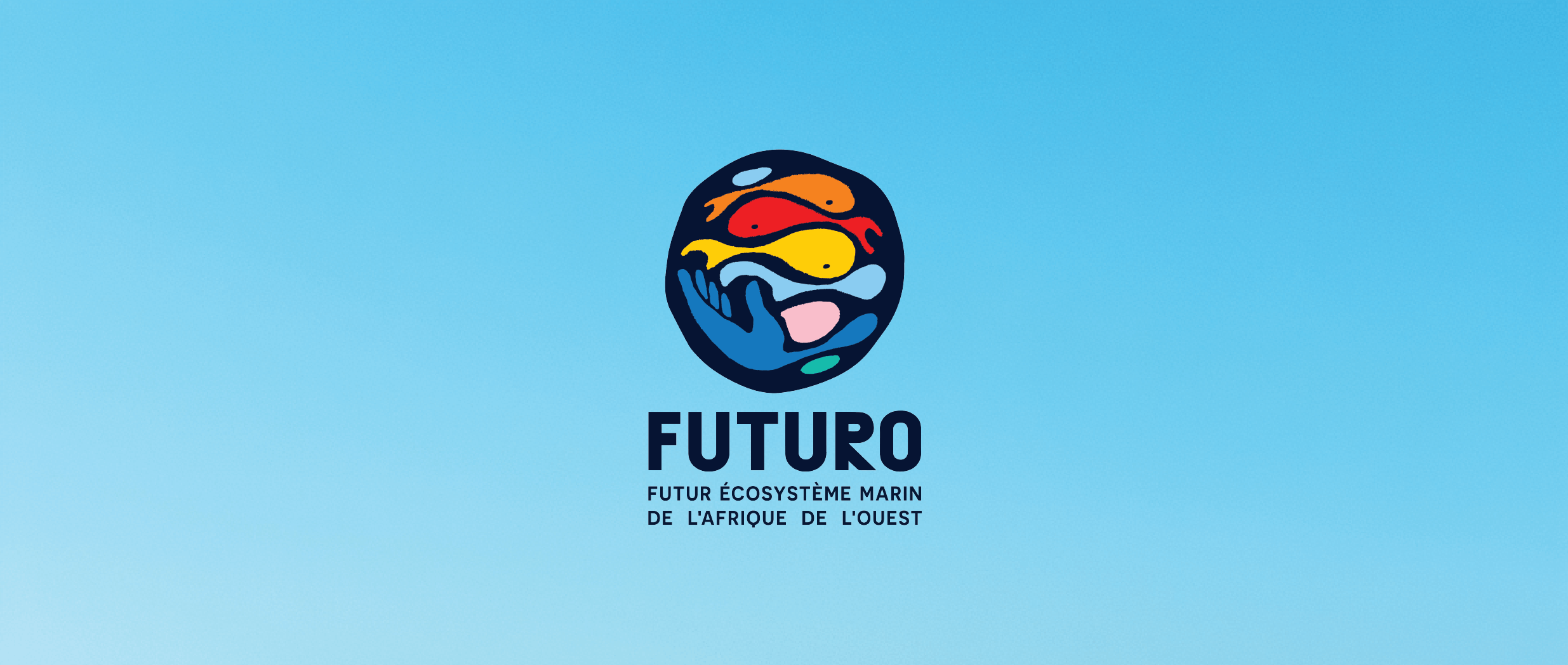

Approuvé par
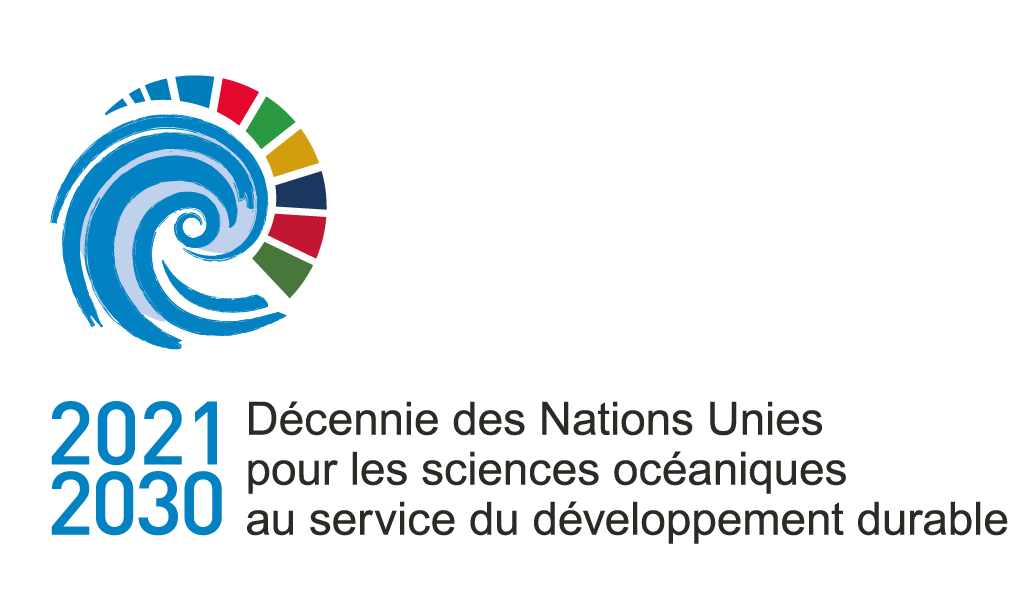
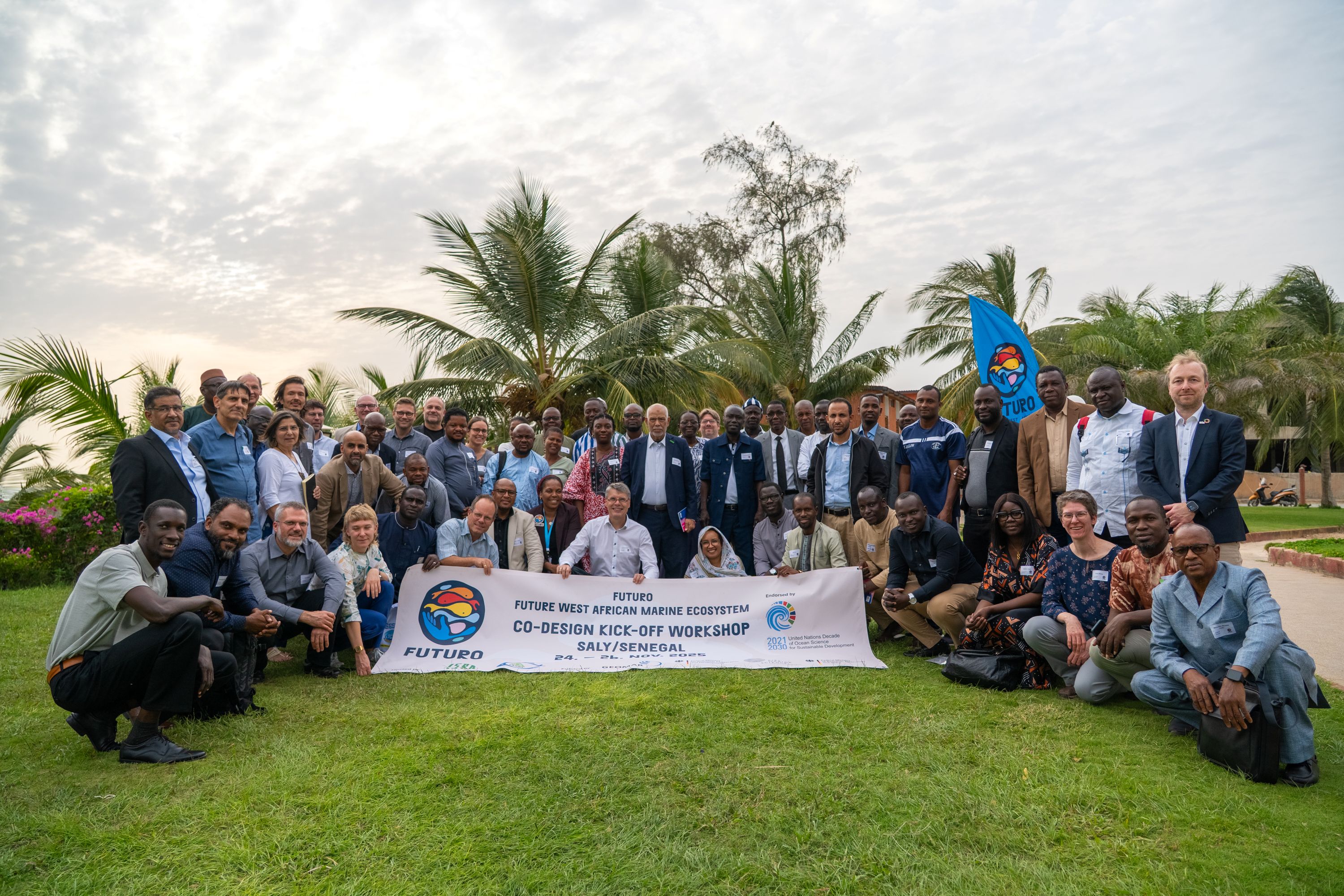
Du 24 au 26 novembre 2025, près de 70 participants venus d'Afrique de l'Ouest et d'Europe se sont réunis à Saly, au Sénégal, pour l'atelier de lancement de la co-conception FUTURO. Des représentants des milieux scientifiques, de la société civile et du monde politique de Mauritanie, du Sénégal, du Cap-Vert, de Gambie, de Guinée-Bissau, de Guinée, de Sierra Leone et d'Allemagne, ainsi que de plusieurs organisations régionales, ont participé à des discussions afin de définir conjointement les thèmes de recherche et les éléments du programme FUTURO. À l'issue de l'atelier, tous les participants ont adopté la « Déclaration de Saly », un appel fort à participer à FUTURO, à renforcer la coopération entre la science et la société en Afrique de l'Ouest et à la soutenir avec le cadre politique et financier nécessaire. « Avec la Déclaration de Saly, nous assumons conjointement la responsabilité de l'important écosystème marin au large des côtes de l'Afrique de l'Ouest, l'une des régions les plus productives de l'océan », a déclaré Edwin Mwashinga, chargé de programme à la IOC-AFRICA.
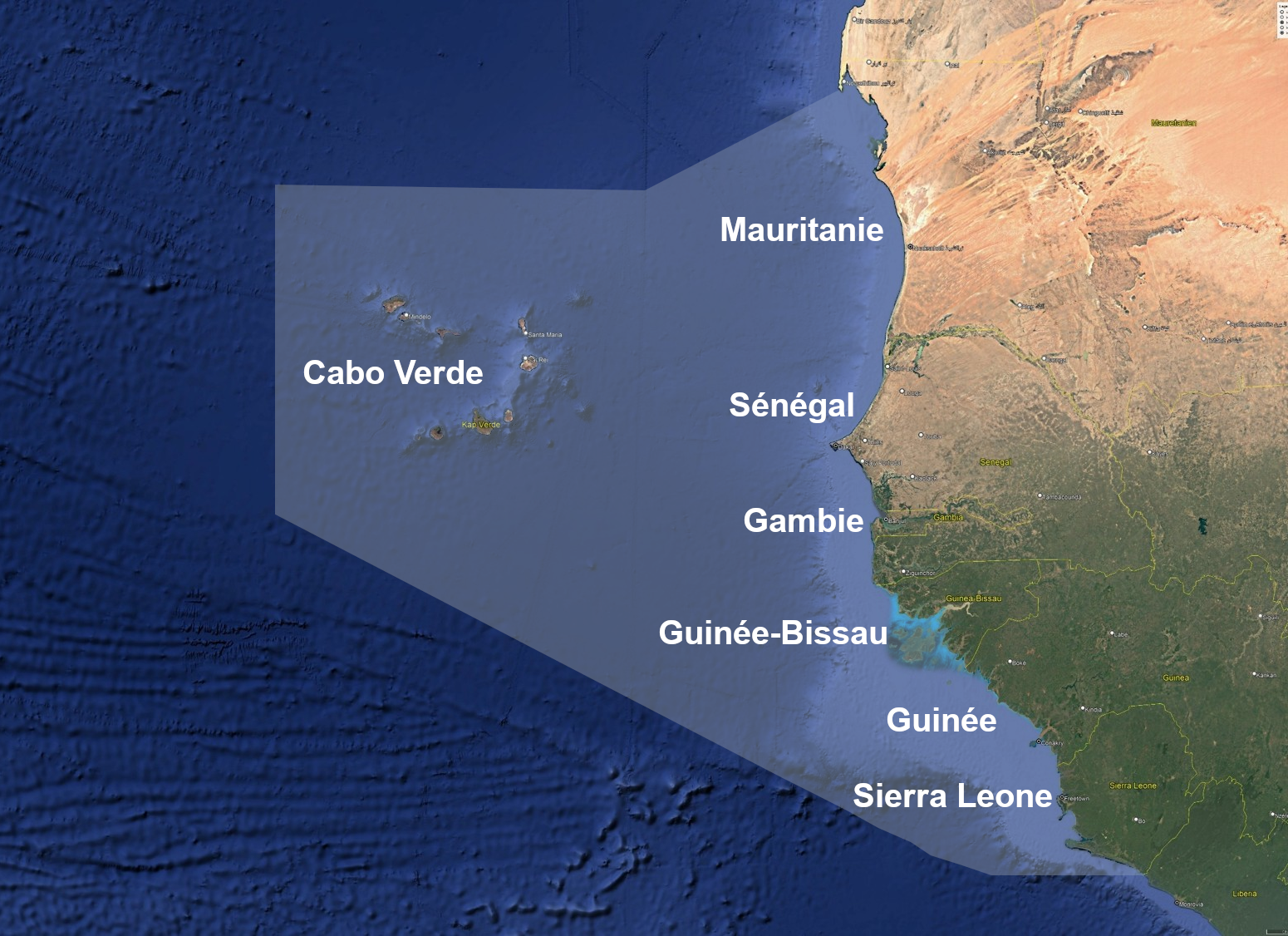
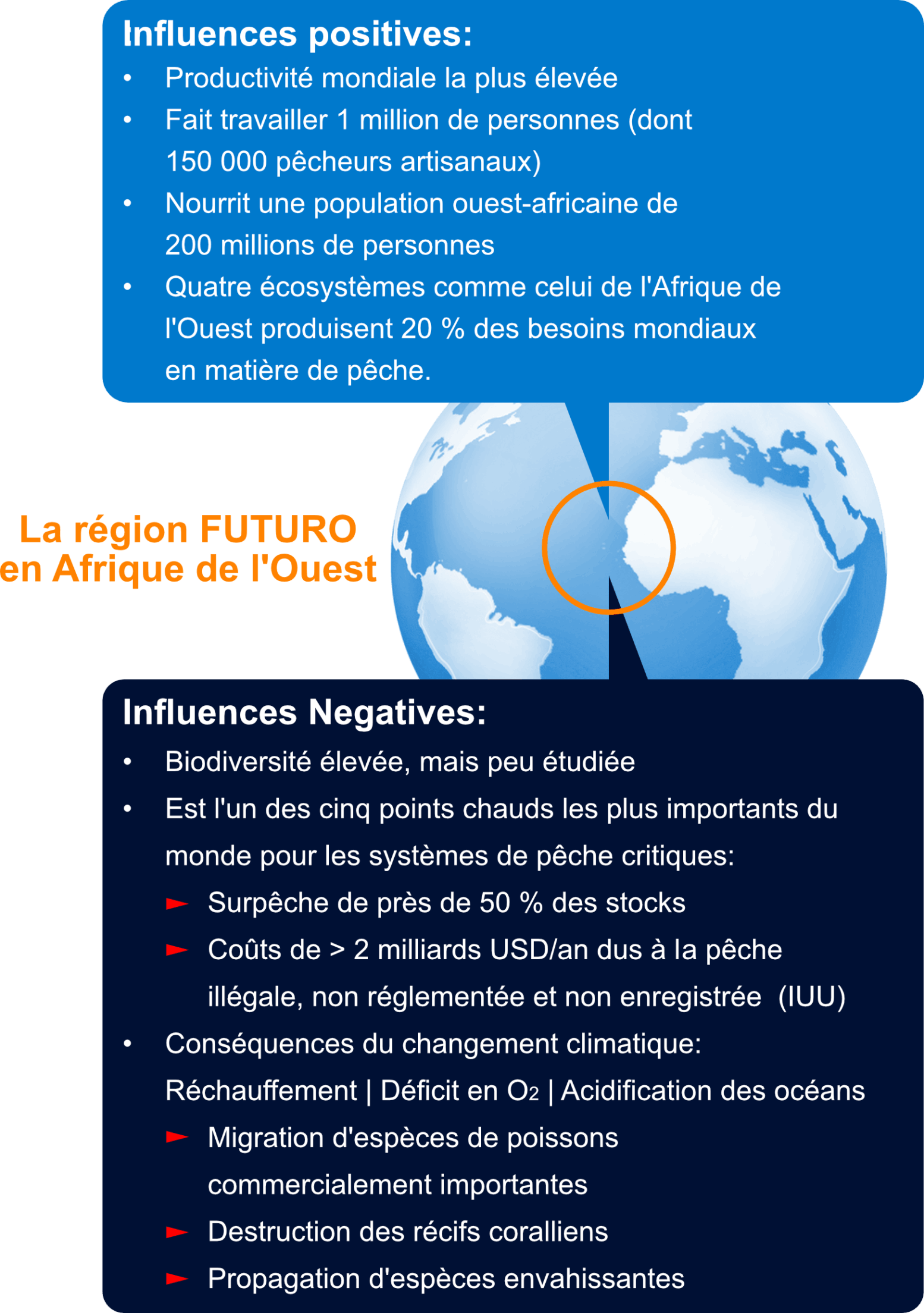
Il n'existe pas de
réseau de surveillance systématique
L'objectif est de mettre en place un
système de management sustainable
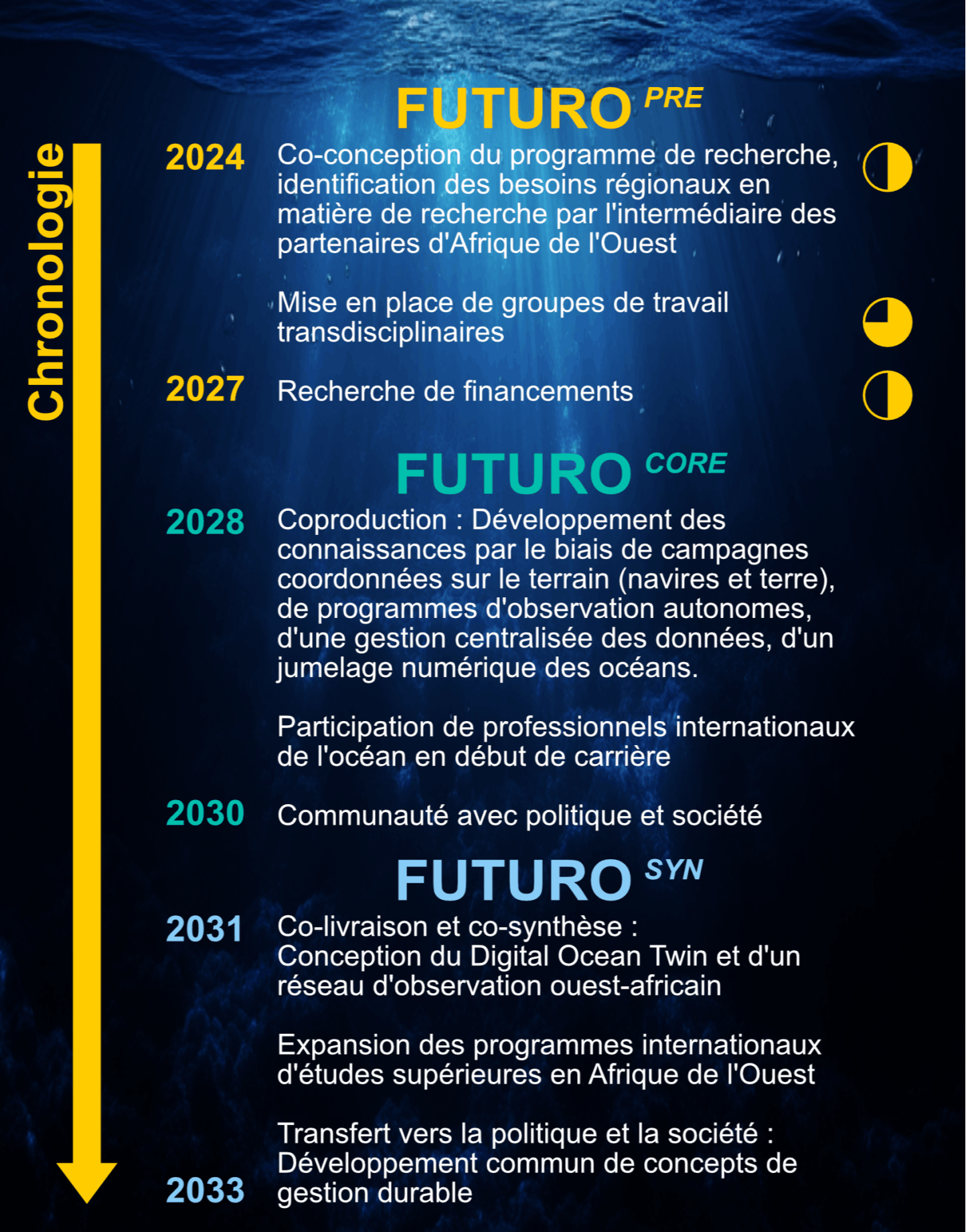
Eastern Boundary Upwelling Systems. The coastal upwelling zones on the eastern edges of the Atlantic and Pacific Oceans are among the most biologically productive regions of the oceans. These ecosystems are defined by ocean currents that bring nutrient-rich but oxygen-poor waters to coasts that line the eastern edges of the world's ocean basins. These regions generate more than 10% of primary marine production on less than 1% of the ocean's surface and account for 20-30% of global fisheries production.
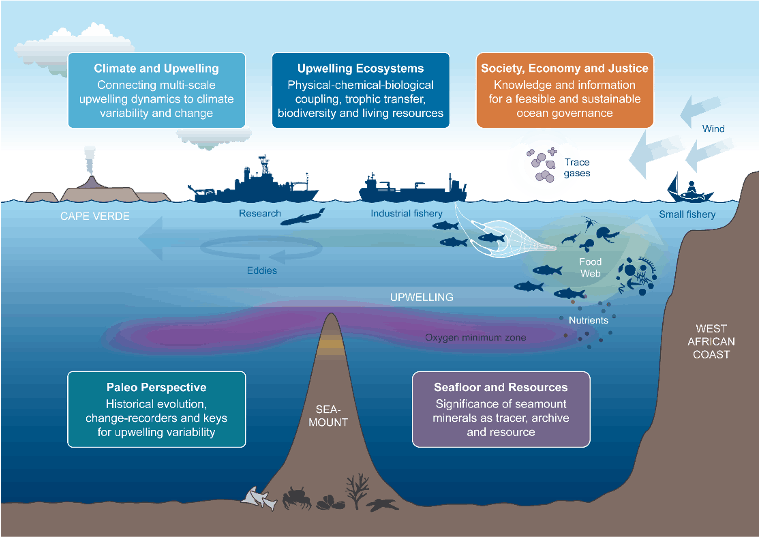
Overview of processes and research topics in the Tropical Atlantic Upwelling Region
Tropical upwelling regions play an active role in climate and oceanic biogeochemical cycles and they host the most productive ocean food chains. They support the largest fisheries of the world and are home to a biodiverse marine environment. In the upwelling region, anthropogenic impacts will therefore have disproportionately large consequences for human society. Ocean warming, ocean acidification, and oxygen depletion converge and may lead to synergistic effects with negative impacts on ecosystem function. Reliable future scenarios of changes in ecosystem services, which are extremely important for humanity, are lacking.
Multidisciplinary research on natural and societal systems in tropical upwelling regimes facilitates the assessment of future fisheries and economic potential, conservation strategies and climate connections.
FUTURO region
The particularly species-rich and productive coastal upwelling area off West Africa provides employment for around 1 million people, including 150,000 artisanal fishers. This region supports a West African population of 450 million people and generates revenues of approximately 3 billion US dollars. It plays an integral role in the climate system and is subject to strong, overlapping anthropogenic influences. FUTURO will focus on the Mauritania-Senegal upwelling region (12-21° N) and will extend out to the Cabo Verde archipelago.
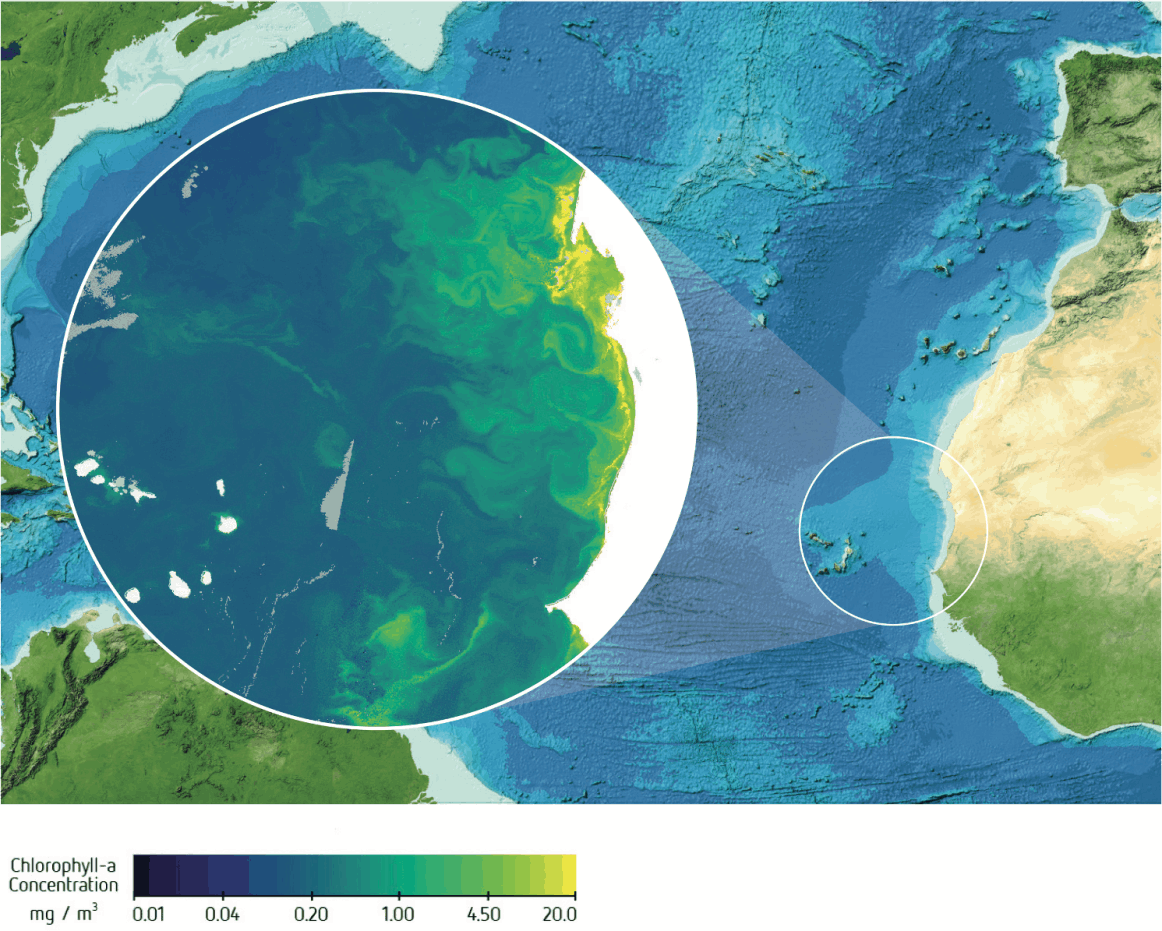
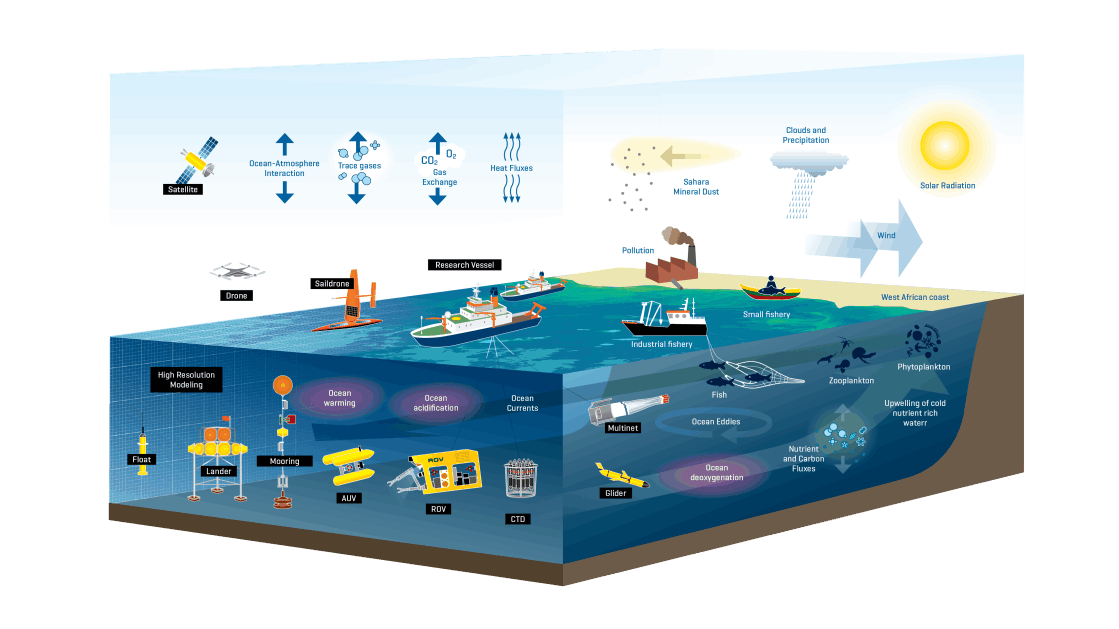
Concerted Ocean Observation
FUTURO is based on the following values and practices:
- Active partnership with West African researchers, stakeholders & marine research institutes: West African experts will be essential partners in the co-design of the campaign. They are invited to become partners of the FUTURO experiment.
- Involvement of all interested parties in the German research landscape: The experiment is a major joint project initiated by leading national research institutes in Germany.
- Coordination with international research communities: The experiment is to be widely presented and promoted internationally. Scientific co-operations are explicitly desired.
The aim of FUTURO is to develop a significantly improved system understanding and robust predictive capability for the future development of this coastal upwelling region, which is of extremely high socio-economic importance. Fisheries yields from this region, which is particularly affected by anthropogenic influences, are of great importance for the economy of almost all West African countries and thus have a concrete impact on the living conditions of people in the Sahel. The focus during the final FUTURO phase will be the synthesis and transdisciplinary transfer of knowledge to guide sustainable ecosystem management actions that benefit the local population.
Prof. Dr. Arne Körtzinger
Professeur de chimie marine, thème 6
Division de recherche 2: Biogéochimie marine
Unité de recherche: Océanographie chimique
Designed by Team FUTURO